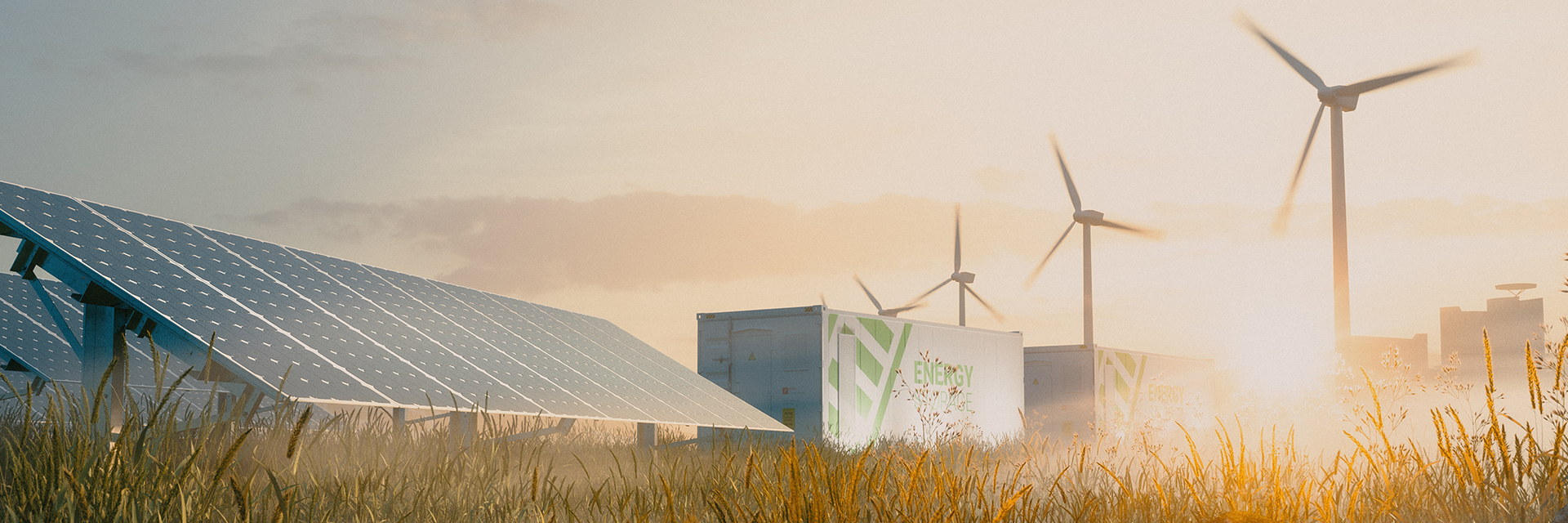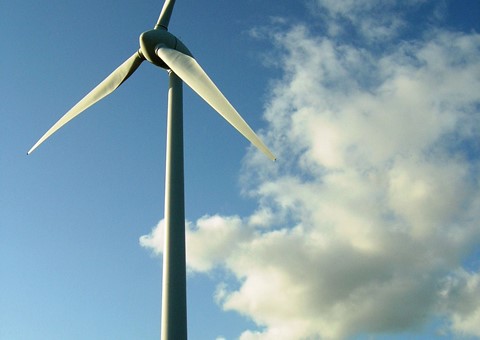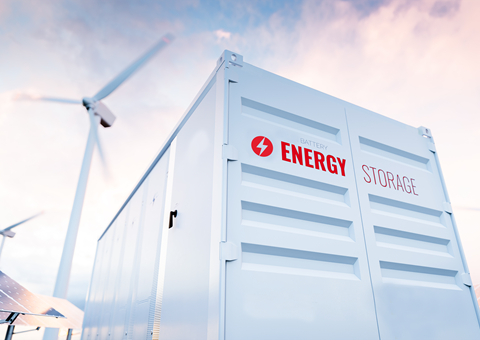
In more and more places in the Netherlands, the electricity grid can barely cope with the demand or supply of electricity (congestion). Through the application of flexibility, demand or supply of electricity can be better balanced. Flexibility is created through the use of curtailment and energy storage, among other things.

Curtailment and energy storage
In curtailment, when there is an electricity surplus, wind turbines and solar panels are directed to produce less, thus limiting the surplus and, for example, not producing electricity at negative prices. With an energy storage system, electricity can be stored in a battery during surplus or very low prices. This electricity can be injected into the grid at a later point in time. The battery can also be used on the balancing markets to trade the stored energy.
Logical cooperation
REF is interested in the business case for these flexibility options and has wanted to get started with energy storage for some time. Software systems, analysts and market access are needed to implement curtailment and energy storage.
Marc van der Pluym, CEO of Renewable Energy Factory: "After doing research on energy storage for some time, it appears that the market for batteries will be very attractive for us as project developers in the years ahead. Scholt is a player that has been working in this area for years and was one of the first in the Netherlands to actively research energy storage. Scholt has the knowledge, market access and experience from previous flexibility projects. Because of our long-standing good relationship, working together was a logical choice."
Rob van Gennip, CEO of Scholt Energy: "We have known Marc and his team for many years as a professional player in the market and we are pleased that REF's sustainable ambitions have led to this cooperation. We have been managing wind farms for more than ten years and in 2016 we became the first party in the Netherlands to link an operational battery to TenneT. As a result, we have gained a lot of knowledge and experience, which we now put into practice many times."

Advantages of flexibility
REF will realise an average of two to three energy projects per year in the years ahead, of around 25 to 60MWp per solar project and 30 MW per wind project. A modern wind turbine easily produces 20 million kWh per year, comparable to the consumption of approximately 6,000 households. When Scholt Energy applies curtailment to one of REF's projects, a local congestion problem can be solved immediately because the grid is kept in balance.
In addition, energy storage systems are relatively easy to add to REF's wind and solar farms. If storage is not an option, curtailment is applied in the event of an electricity surplus. With a battery, the surplus of renewable energy can mostly be stored. Since production does not have to be switched off, more renewable energy can be supplied.
"Batteries can use the same grid connection as our wind and solar projects. By coupling a battery to a grid connection of limited size, the production of our wind and solar farms does not have to be capped, or at least not very much," says Marc van der Pluym.
A combination of curtailment and energy storage ensures the best performance of REF's wind and solar farms. In addition to the benefits for the performance of the sustainable projects, batteries also add to the financial business case.
Van der Pluym: "Together with Scholt, we can also deploy the energy storage system in TenneT's imbalance and balancing markets, where we can trade the stored electricity. At times when electricity is cheap, we buy and store it and when the price is higher, we are able to sell the stored electricity."
The plan is to apply flexibility to all REF projects, starting with three projects that have already been realised. The combination of wind turbines, solar panels and batteries is being directly considered.
Van Gennip: "In managing REF's wind and solar farms, we are taking another step in our ambition to manage a large portfolio of renewable assets and keep the changing energy grid in balance."

Direct coupling of green electricity
More and more companies are choosing to purchase sustainable energy via Scholt Energy using Guarantees of Origin. This means that energy consumption can be linked to a specific renewable energy source, such as an own solar installation or a local wind farm. Renewable Energy Factory and Scholt Energy can also support each other in this increasing demand. REF is open to linking their projects directly or virtually to customers.
About REF
REF has been developing wind projects independently since 2010. As soon as solar panels became profitable, large-scale solar projects were added. REF focuses on landowners with sufficient land where wind and/or solar farms can be built. REF leases the land and allows the landowner to benefit from a fixed payment with no investment and no worries. They remain involved in the project from A to Z, from the permit and development to realisation and operation. REF is currently working on the construction of Windpark Oude Maas, at which the first electricity will be produced within a few weeks.
Interested in curtailment or energy storage?
please contact our energy transition specialists
